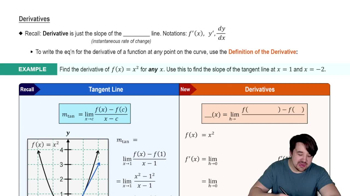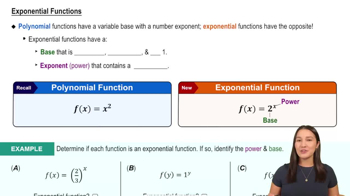Suppose f(3) = 1 and f′(3) = 4. Let g(x) = x2 + f(x) and h(x) = 3f(x).
Find an equation of the line tangent to y = h(x) at x = 3.
 Verified step by step guidance
Verified step by step guidance Verified video answer for a similar problem:
Verified video answer for a similar problem:



 3:59m
3:59mMaster Derivatives of Linear Functions with a bite sized video explanation from Patrick
Start learning